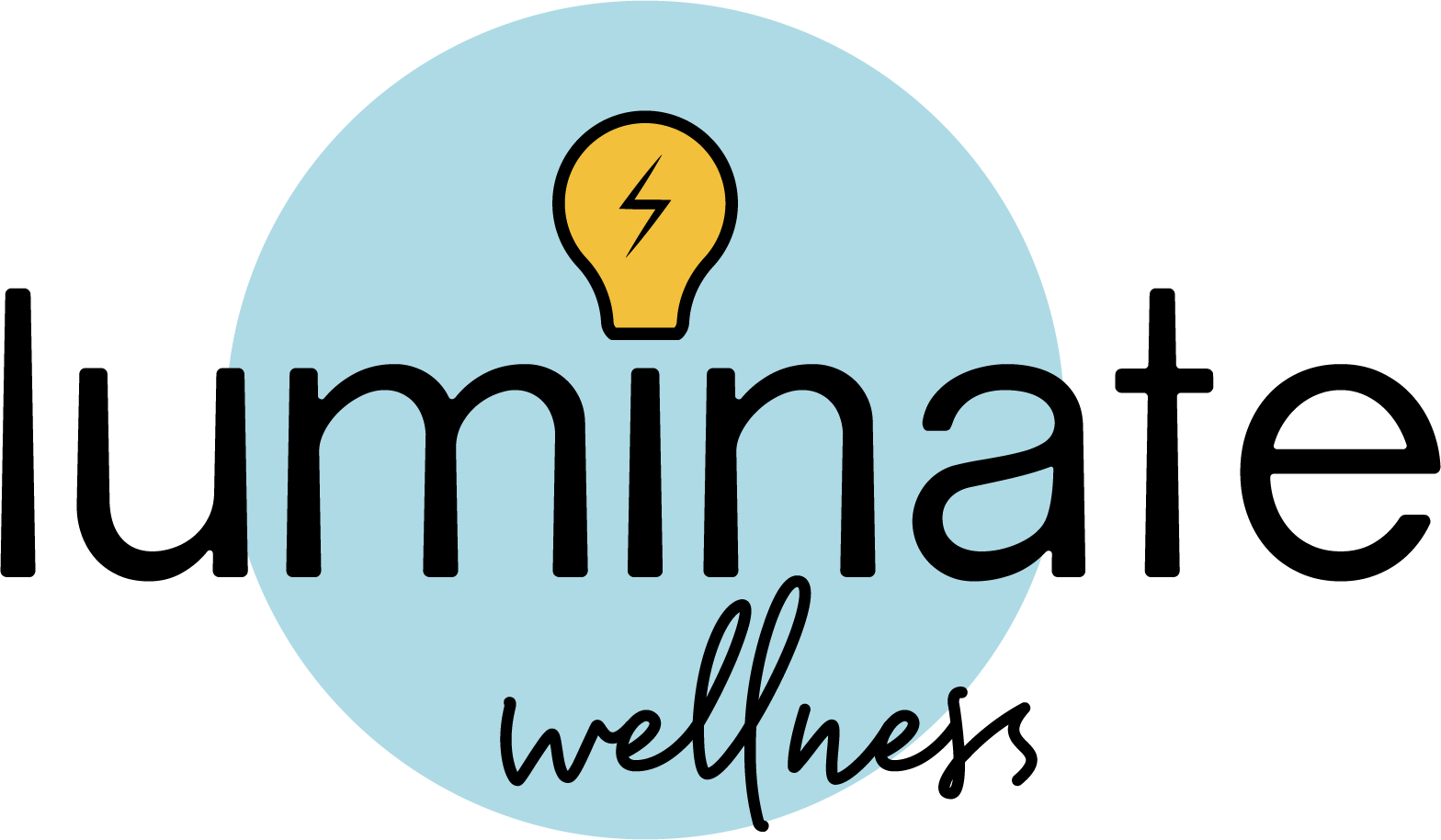Your employees are your greatest asset. Invest in them.
At Luminate Wellness, we provide customized, trauma-informed workplace training grounded in adult learning principles and cultural humility. Our programs emphasize experiential learning and are crafted to foster an inclusive, resilient, and psychologically safe environment. We work with organizations to create a training experience that respects time constraints and budget, ensuring meaningful outcomes aligned with your team's unique needs and values.
Workshop Options:
The following workshop options are offered in ½ day, full day, lunch and learn or online Zoom formats.
Workshops will be custom designed to meet the needs of employees in their particular industry.
Reframing Stress: Enhancing Well-Being
Stress is a part of every workplace, but not all stress is unproductive. This workshop teaches how to navigate the stress tied to meaningful work, using it as a tool for motivation, connection, and innovation. Attendees will learn to differentiate between helpful and unhelpful stress, apply personal boundaries, and use self-compassion and rest as vital resources. The training offers practical tools for managing stress healthily, fostering resilience, and aligning actions with personal values.
Learning Objective:
Participants will identify how stress connected to their values can drive motivation and productivity, while learning to set boundaries and self-compassion practices to reduce unnecessary stress and enhance well-being at work.
Communication with Compassionate Curiosity
The power of compassionate curiosity can transform workplace interactions. This workshop teaches skills in empathetic listening, asking thoughtful questions, and recognizing biases to foster a workplace culture rooted in trust, respect, and open dialogue. Compassionate curiosity isn’t just about listening—it’s about fostering self-reflection and creating space for honest conversations that navigate conflicts constructively. By practicing this approach, participants build the confidence to engage meaningfully in challenging conversations and strengthen connections with colleagues.
Learning Objective:
Participants will be able to use compassionate curiosity techniques to engage in open dialogue and approach workplace conflicts with greater empathy.
Certainty and Uncertainty:
Embracing the Unknown, Sparks Innovation
As humans, we naturally crave certainty. It feels safe and secure. Though creating a psychologically safe environment in a workplace is always essential, too much of a good thing can keep us stuck in the status quo and can hinder growth and innovation. Once we establish safety, making space for the unknown becomes key to both personal and organizational development.
This workshop explores how embracing uncertainty fuels creativity and innovation. Participants will learn why uncertainty feels challenging, how to balance it with the need for certainty and stability, and develop strategies to build tolerance for the unknown—unlocking new pathways for progress and fostering a creative, adaptive mindset.
Learning Objective:
Participants will learn how stepping into uncertainty drives innovation and growth, while balancing the need for certainty and safety to support a resilient, adaptable team.
Navigating Implicit Bias:
Building a Respectful and Inclusive Workplace Culture
Our brains are wired to categorize and judge as a way to make sense of a highly stimulating world. This is an instinctive process that, if left unchecked, can lead to harmful and destructive biases that can deeply impact well-being and create lasting harm for individuals and teams alike. This workshop offers a practical, research-backed approach to understanding how these mental shortcuts shape our judgments, especially in high-stakes environments. Participants will learn to recognize and address implicit biases, developing the awareness and skills needed to foster a respectful workplace grounded in DEI (Diversity, Equity, and Inclusion) values.
Through self-reflection, critical thinking tools, and storytelling, participants will learn tools to mindfully deconstruct both implicit and explicit biases while balancing psychological safety with openness to diverse perspectives. This training equips your team with actionable strategies grounded in compassionate curiosity, fostering communication that honours and values diverse perspectives.
Learning Objective:
Participants will learn tools to identify implicit and explicit biases, analyze their impact, and apply strategies grounded in compassionate curiosity to create a respectful and inclusive workplace.
Fostering Self-Determination in the Workplace:
Building Motivated Teams
Self-Determination Theory shows us that lasting, meaningful growth is rooted in intrinsic motivation—the inner spark that drives genuine change. Unlike extrinsic motivation, which relies on external rewards, intrinsic motivation inspires individuals to act from a place of true engagement, meaning, and purpose. This session focuses on fostering an environment that nurtures intrinsic motivation, helping individuals develop autonomy, competence, and a sense of belonging.
Grounded in Deci and Ryan’s principles, this workshop guides leaders, managers, and support staff in building an ecology of self-determination where intrinsic motivation can flourish. Through interactive exercises and practical strategies, participants will learn how to create conditions that support both clients and teams to thrive, with clear, supportive boundaries in place.
Learning Objectives:
Participants will identify key principles of Self-Determination Theory and apply strategies to foster intrinsic motivation, autonomy, and belonging for employees and teams.
Growth Mindset for Teams:
Cultivating Collaboration and Well-Being
Foster an environment of growth by embracing a generative mindset that uncovers existing strengths and explores new possibilities. This session shifts the focus from reacting to problems to intentionally nurturing practices that support individual and team well-being. Participants will explore ways to create space for meaningful work, intentionally focusing on what promotes growth, resilience, and collaboration.
Through reflective discussions and interactive exercises, participants will gain tools to use language mindfully, cultivate an inclusive atmosphere, and prioritize well-being for sustainable growth. This approach allows teams to shift their focus toward positive, solution-oriented practices that align with the organization’s broader goals and encourage a thriving workplace culture.
Learning Objective:
Participants will apply strategies to foster a generative mindset, create space for meaningful work, and support team well-being and collaboration.
Understanding Grief and Loss:
Building a Compassionate Workplace
Equip your team to navigate the complexities of grief and loss, fostering a culture of empathy and support. This workshop explores the impact of grief on individuals and workplace dynamics, emphasizing the importance of creating a safe space where employees feel supported during times of loss.
Key topics include:
- Recognizing the effects of grief in the workplace
- Building empathy and practical skills to support grieving colleagues
- Understanding ambiguous loss and its unique challenges
- Cultivating an environment where open conversations about grief are encouraged
Through this workshop, participants will gain the tools to support one another effectively, helping to create a resilient and compassionate workplace.
Learning Objective:
Participants will recognize the impact of grief on workplace dynamics and apply empathy-driven strategies to support a compassionate environment for grieving colleagues.
Trauma-Informed Practices for Community-Based Organizations
Community-based non-profit organizations have a unique role in fostering safe, supportive environments. This workshop equips your team with essential tools to understand trauma’s impact and prevent re-traumatization. We will cover:
Understanding Trauma: Learn what trauma is and how it impacts the nervous system. Understand the importance of preventing re-traumatization to create safer, more supportive environments for healing.
Trauma-Informed Care: Integrate principles like safety, transparency, collaboration, mutuality, and choice into your practices.
Communication & Bias: Explore how communication styles and unconscious biases impact trauma survivors, and develop strategies for supportive interactions.
Systemic Trauma: Recognize the effects of systemic trauma and social determinants of health, and explore approaches to support people facing these challenges.
Join us to build a compassionate, trauma-informed approach, empowering your team to create spaces where healing and resilience can thrive.









